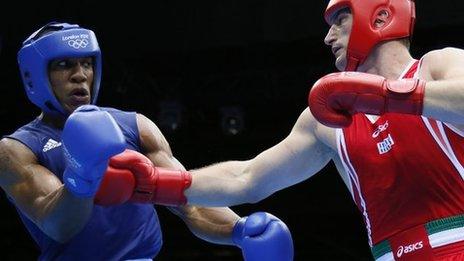Vertonghen head injury: The rules in different sports
- Published
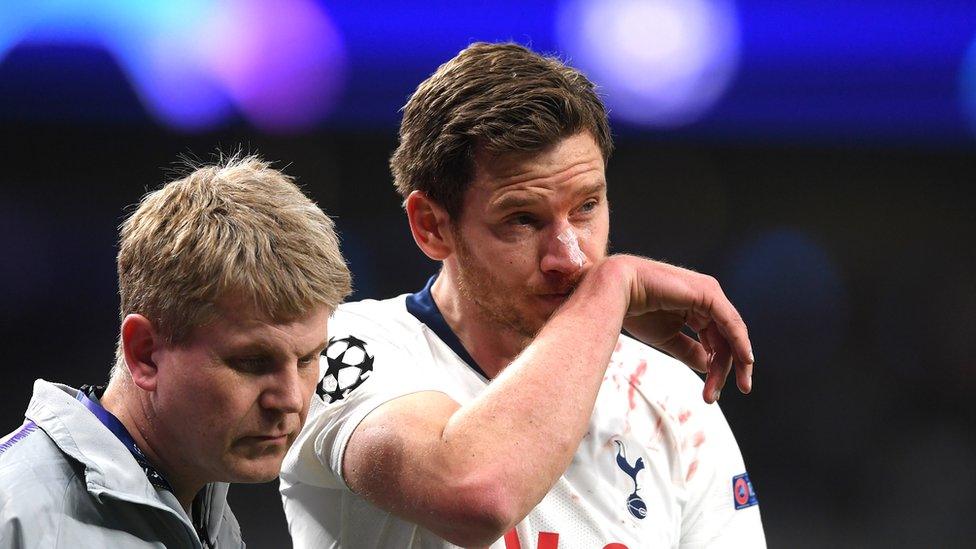
The debate around head injuries in football has been brought up again after Tottenham player Jan Vertonghen went off in Tuesday's match against Ajax.
The Spurs defender clashed heads with teammate Toby Alderweireld and tried to carry on before coming off in the Champions League semi-final first leg.
The referee had checked with the team doctor before allowing Vertonghen back on the pitch.
His manager Mauricio Pochettino says the player is "OK" but will be monitored by the club's medical staff.
According to the NHS,, external "concussion is a temporary injury to the brain caused by a bump, blow or jolt to the head".
However, it can sometimes have longer-term effects too - including depression, anxiety and changes in behaviour, while there have been links shown between brain injuries and dementia in later life.
But what are the rules around head injuries and concussion in sport?
Football
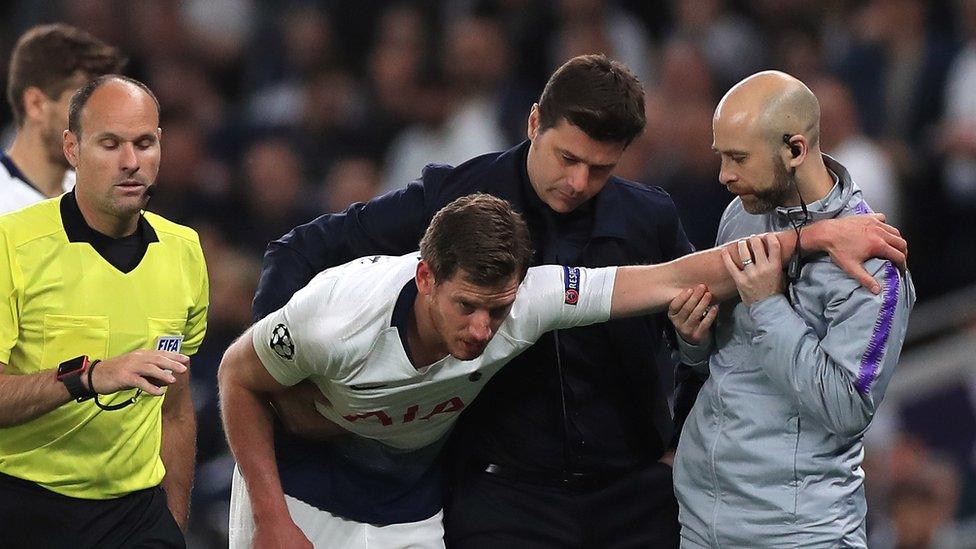
Uefa's concussion protocol, external says the ref should stop the game for up to three minutes to allow a player to get treatment.
It says: "A player will only be allowed to continue playing on specific confirmation by the team doctor to the referee of the player's fitness to carry on."
Meanwhile, brain injury charity Headway says "temporary concussion substitutions" should be brought in to allow medical staff to make proper assessments of injured players.
The FA has concussion guidelines, external for all levels of the sport, with a simple mantra: "If in doubt, sit them out."
Rugby
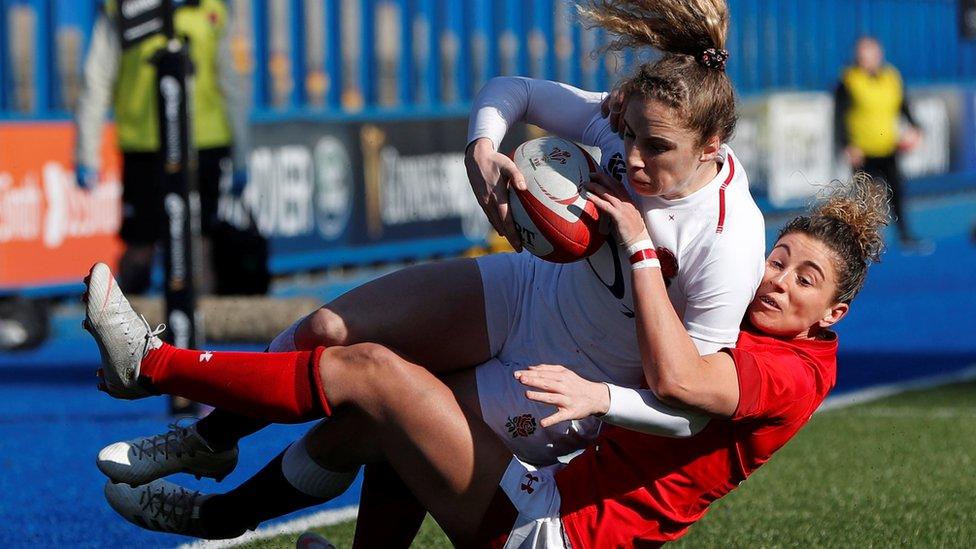
World Rugby, external says this year's Rugby World Cup "will feature the most comprehensive player welfare standards ever implemented for a rugby event".
Since the 2015 world cup, elite rugby union teams have been able to make a temporary substitution for head injuries.
The player who comes off is assessed and if they can't come back on, that sub becomes permanent - even if the team has already used all of its substitutions.
For non-elite games, teams use the "recognise and remove", external programme, which means the concussed player comes off immediately, gets medical attention and must be cleared to play in writing by a qualified healthcare professional.
Cricket
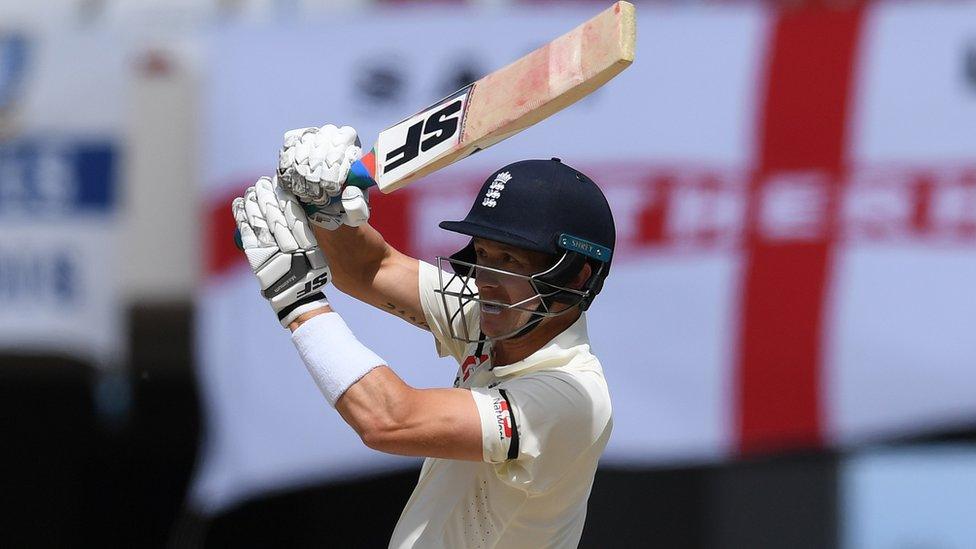
Concussion is less common in cricket compared to some other sports - but of course there's always the danger of being hit by a very hard ball at speed.
Temporary substitutions for concussions were brought into English county cricket in 2018.
The rule applies in the County Championship, One-Day Cup, T20 Blast and Women's Super League.
A player who's been hit on the head has a five-minute on-field assessment and if need be they leave the pitch and a decision is made on a replacement.
Boxing
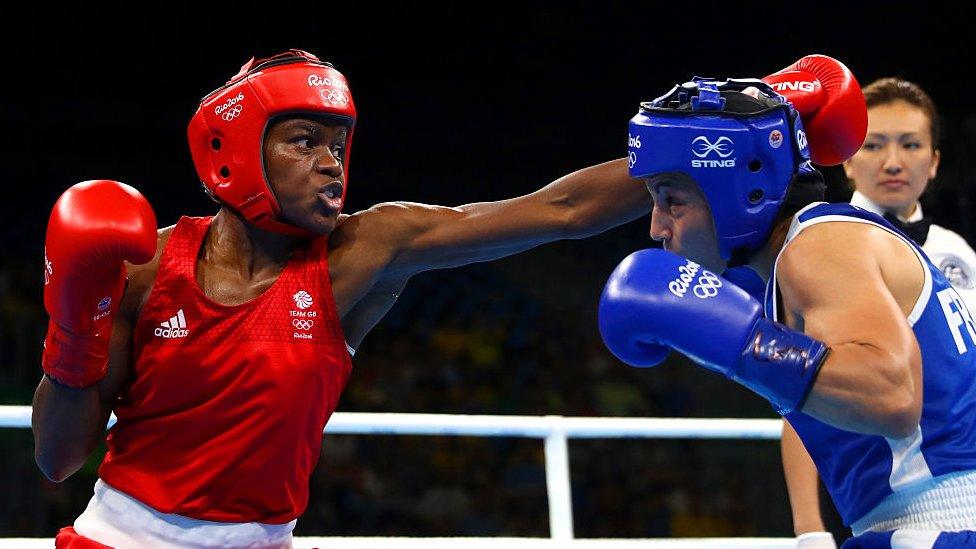
In a sport where hitting your opponent hard is the aim of the game, concussion is constantly being studied and debated.
Headgear was mandatory for all adult amateur boxers until 2013, when it was removed for men due to new data which suggested the number of concussions is lower without headgear.
Amateur women still wear headgear because a relative lack of data on head injuries in the women's sport.
The International Amateur Boxing Association says that a minimum of one doctor specialising in concussion must be there at each fight.
American football
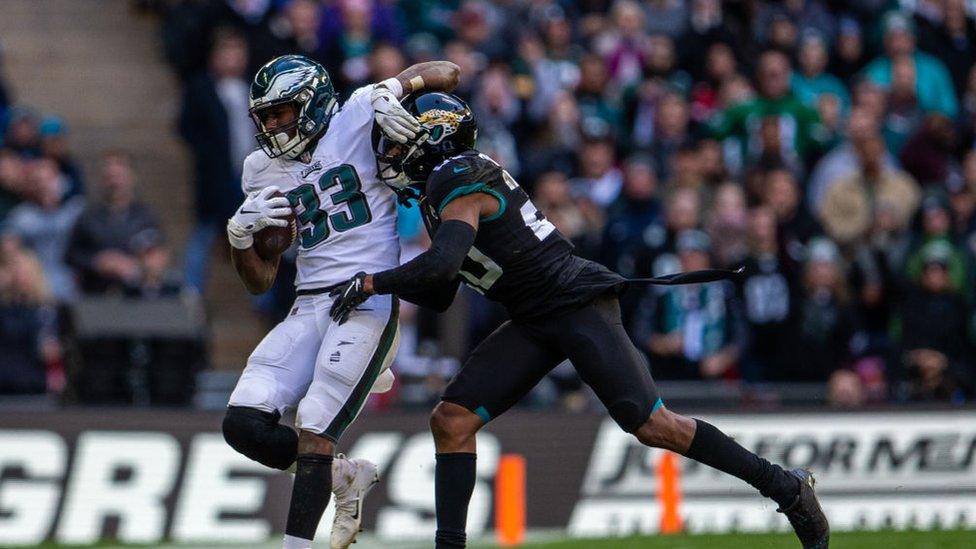
American football is probably the sport where head injuries and concussion are the most hotly debated.
A study of American football players' brains found that 99% of professional NFL athletes tested had a disease associated with head injuries.
The NFL's "play smart play safe", external concussion protocol includes having doctors in the stands with video equipment to monitor players' behaviour if they are suspected of concussion.
If they have concussion, they have to be taken off and cannot come back on in the match.


Follow Newsbeat on Instagram, external, Facebook, external, Twitter, external and YouTube, external.
Listen to Newsbeat live at 12:45 and 17:45 weekdays - or listen back here.
- Attribution
- Published1 May 2019
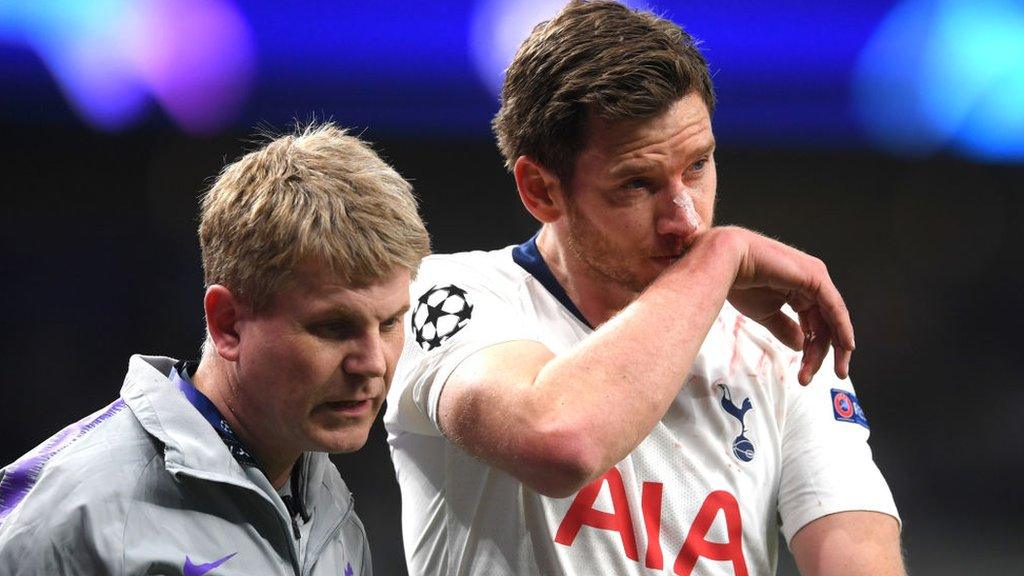
- Attribution
- Published11 December 2018

- Attribution
- Published28 March 2018
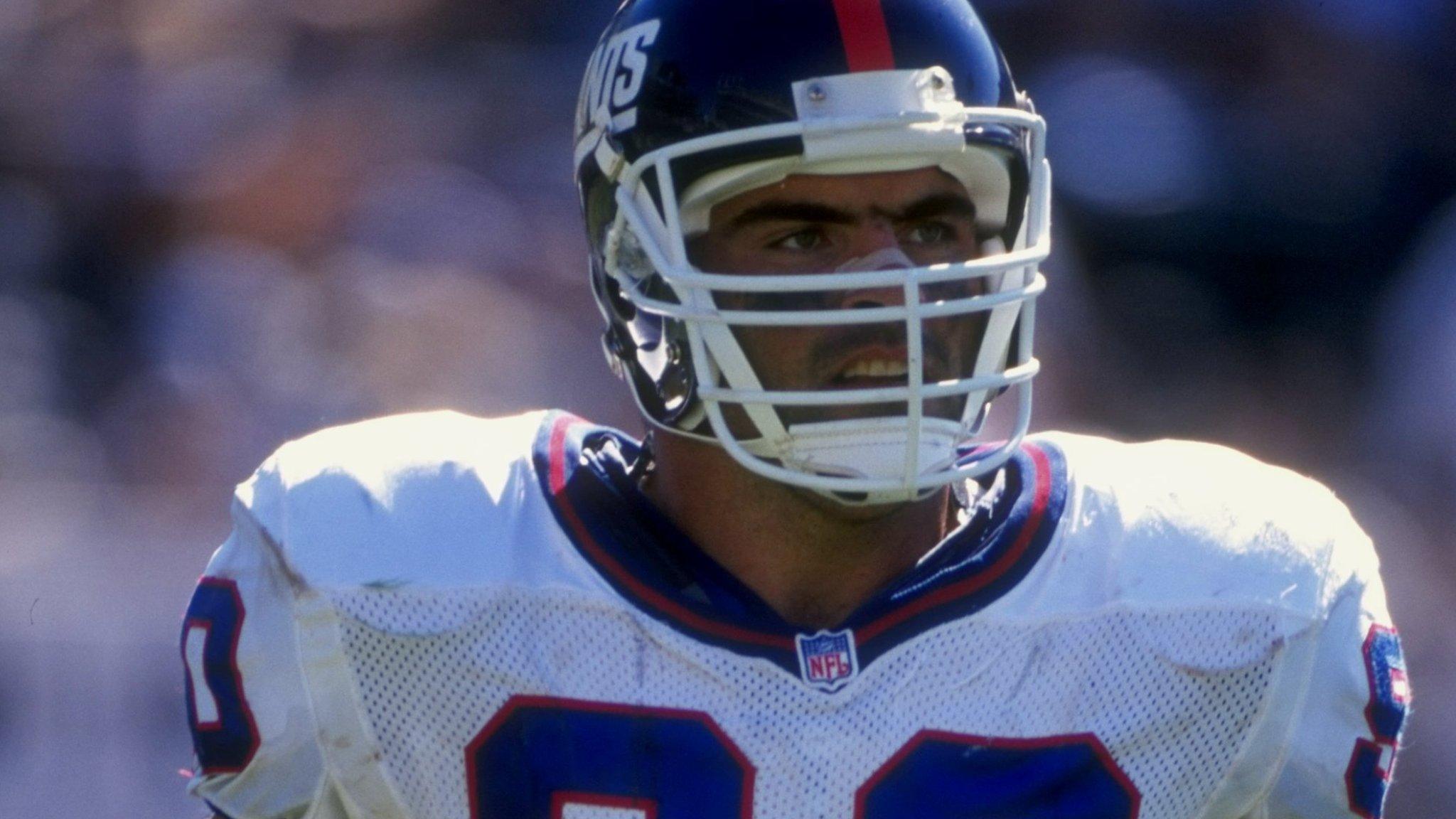
- Attribution
- Published21 March 2018
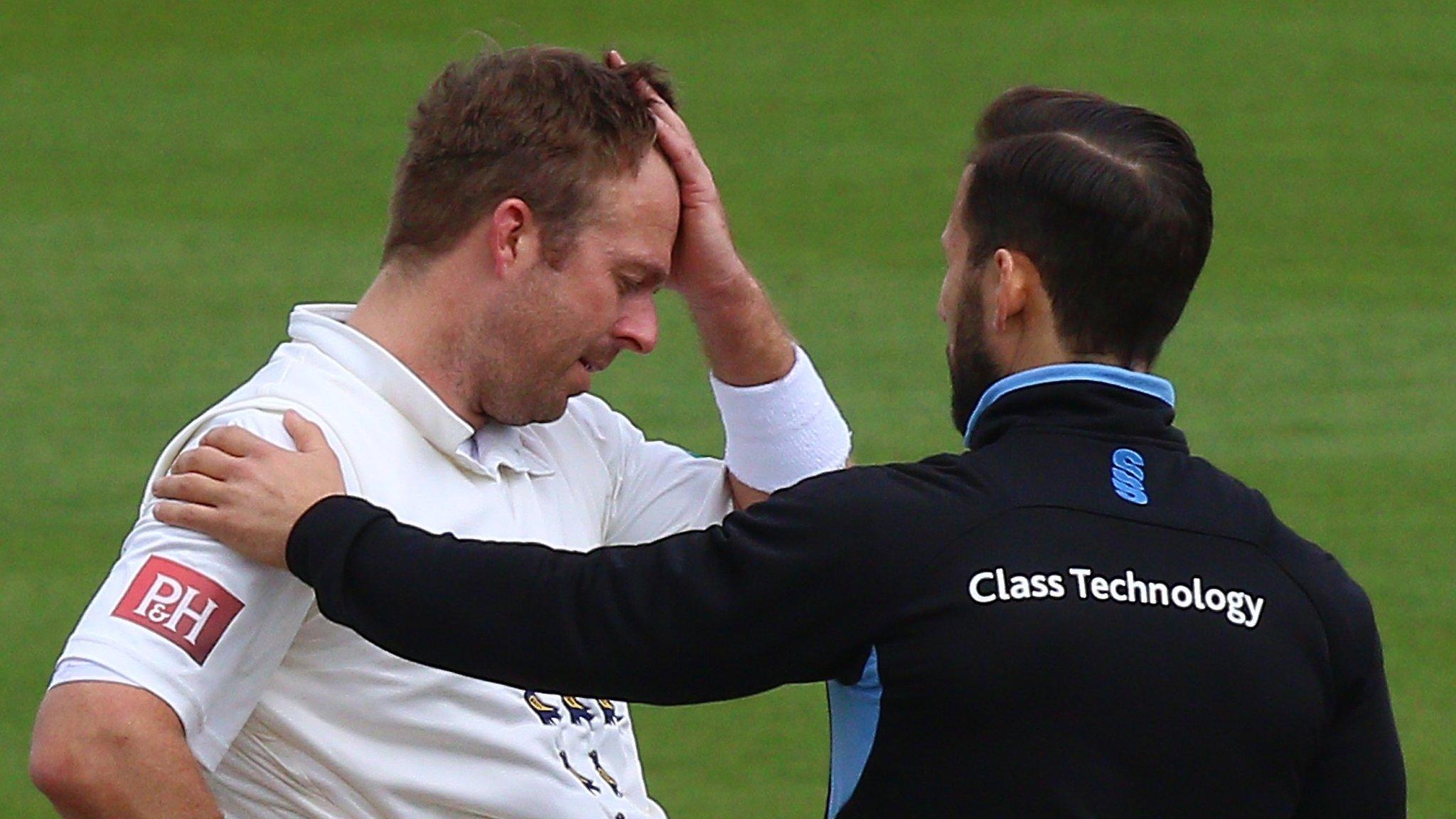
- Attribution
- Published14 December 2017
- Published25 July 2017
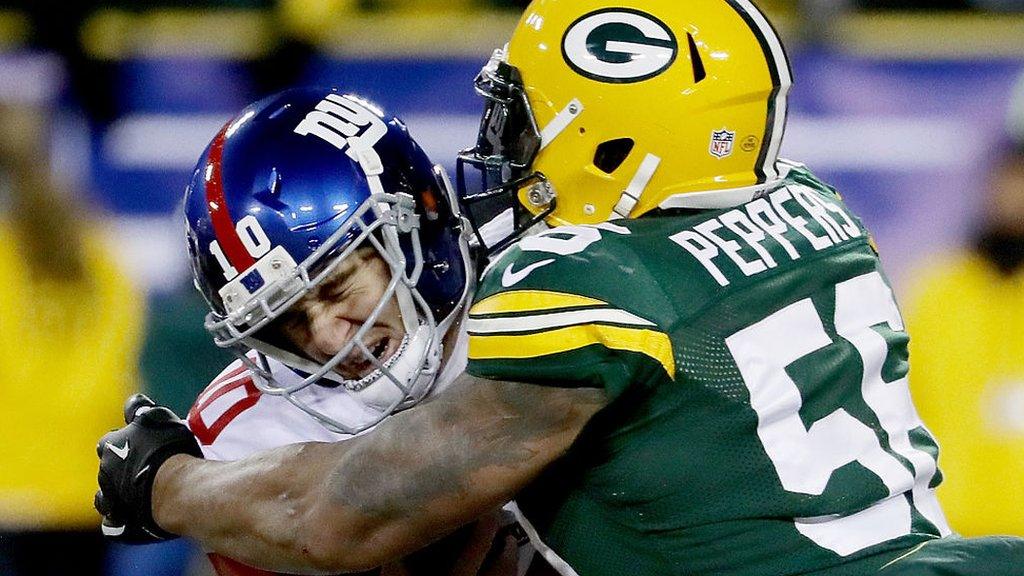
- Attribution
- Published15 March 2016

- Published2 December 2014

- Published6 September 2013
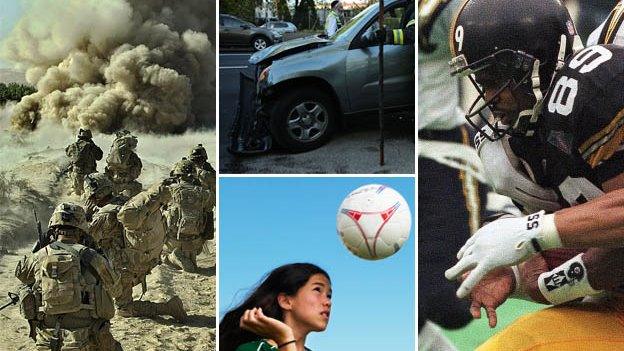
- Attribution
- Published18 March 2013
